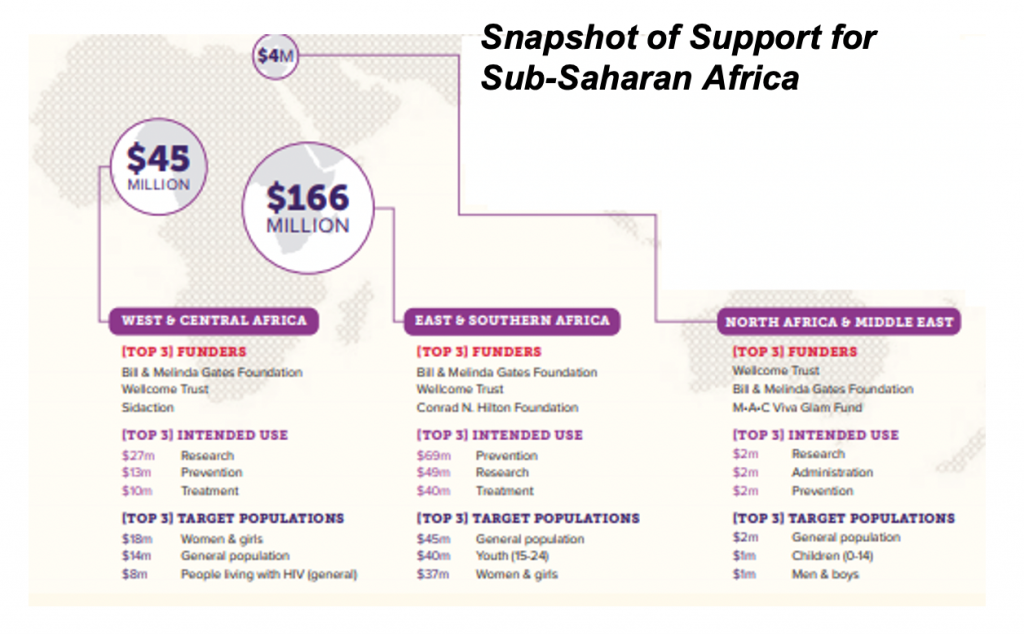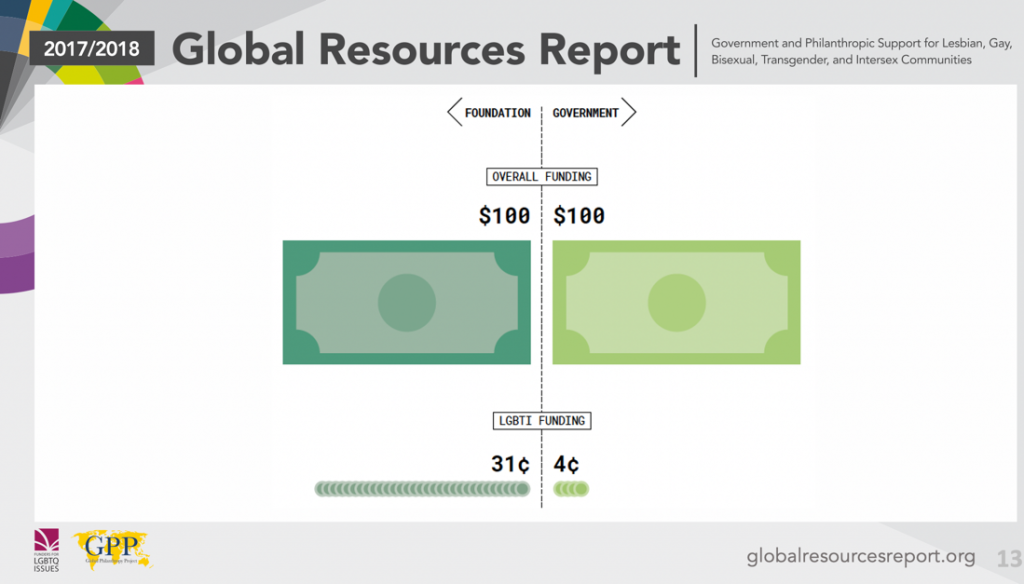Protecting Human Rights During COVID-19
COVID-19 has had incalculable impacts. One of the many side effects of the disease is how it creates an increased opportunity for the infringement of human rights. A recent FCAA Connect webinar, hosted in partnership with the Global Philanthropy Project and Africa Grantmakers’ Affinity Group, focused on this topic. Roxxy Odoyo from UHAI-EASHRI and Caroline Kouassiaman from ISDAO provided critical insights on their grantees’ experiences.
For those who missed this discussion—and for those who simply want to revisit it—we have provided the following recap (you can also watch it a recording). We hope this is useful guidance for funders as to where their resources might have the greatest impact at this unprecedented time.
Takeaway #1: Grantee organizations need more philanthropic funding for human rights-related advocacy.
Using data from the most recent Philanthropic Support to Address HIV/AIDS report, the presentation detailed how philanthropic funding currently supports human rights in Sub-Saharan Africa.[i] Notably, human rights is not one of the top intended uses of philanthropic funding in the region.

Additionally, very limited funding is provided for LGBTI and sex worker populations, despite the fact that they are at higher risk for HIV and AIDS. There alsois a gap in funding for advocacy to support human rights-based interventions. This type of funding, which tends to be more flexible, also helps organizations respond to emerging crises, such as COVID-19.
Takeaway #2: While there are encouraging trends for LGBTI and trans populations, there is still a long way to go to reach funding equity.
When paired with FCAA’s resource tracking report, GPP’s Global Resources Report: Government and Philanthropic Support for Lesbian, Gay, Bisexual, Transgender, and Intersex Communities provides an even more cohesive and nuanced funding story. The 2017-2018 data shows an increase of 11% for LGBTI communities as compared to the prior report. But the total sum of $560 million is a very small percentage of global foundation funding (31 cents out of every $100) and an even smaller percentage of government funding (just 4 cents out of every $100). The level of LGBTI funding focused on human rights for HIV-affected individuals has actually decreased 31% since the last report.

Takeaway #3: The pandemic has highlighted the need for increased flexibility.
Though UHAI and ISDAO are both flexible with funding, these organizations are the exception. Most funding is project-based and does not allow grantees to quickly adapt during a crisis like COVID-19.
“How can we, as funders, ensure—not just now, during COVID, but in the future—that we enable partners to pivot?” asked Caroline Kouassiaman.
Even as governments attempt to provide basic needs, such as food, during the crisis, they are limited and often not accessible to marginalized communities. Since early April, UHAI-EASHRI has made over 50 grants related to COVID-19. Many were related to these basic needs, while others were related to mental health, violence, and advocacy. The situation is similar for ISDAO, whose grantee partners voice a need for assistance to purchase food and pay rent.
Over half of the COVID-related grants UHAI has made in recent months have been related to HIV. Spaces where services are typically provided have had to close due to the pandemic. Trans-specific health care access has also been challenging, with many individuals struggling to procure medications. Safer sex commodities are also in short supply.
Takeaway #4: The militarized enforcement of COVID-related restrictions is particularly felt in sex worker and LGBTI communities.
Even before COVID-19, sex workers and LGBTI communities were disproportionately impacted in their ability to generate income. Now, curfews and restrictions on movement are further inhibiting their ability to work, while militarized enforcement of laws related to the pandemic are leading to little or no accountability in regard to human rights. The situation has resulted in arbitrary arrests, harassment, and extortion. Sex workers struggling to gain access to work spaces are having to use their already-decreased income on bribes.
As people are stuck at home, there has been an increase of on- and offline surveillance of LGBTI individuals and sex workers by their neighbors, as well. People are being told that they should not hesitate to report someone with COVID-19 symptoms. Ebola and other outbreaks have shown that LGBTI people are the first to be targeted by this type of civil surveillance. At the same time, restrictions on movement have made safe, affirming spaces for the LGBTI community to come together inaccessible. All of this contributes to a sense of isolation and fear.
Takeaway #5: Governments are using COVID to fast-track potentially harmful legislation.
The response to the pandemic is making it easier for governments to quietly enact policies that may have harmful long-term impacts. For example, elections are taking place under fraught circumstances, and legislation is being pushed through without due process or consultation.
In addition, government surveillance has been deployed under the guise of public health. Laws are being replaced and updated in the current context. In some countries, legislation is being advanced allowing doctors to divulge an individual’s medical information without their knowledge and requiring anyone suspected of having COVID to undergo a medical exam and treatment. This sweeping power could be used to target vulnerable communities, including LGBTI individuals and people living with HIV.
The Bottom Line
As private funders, we have a unique ability to direct resources towards protecting human rights. We can, for example, provide funding for core support; we can allow grantees the flexibility to pivot, as needed, to address this crisis; we can consult with, and listen to the organizations on the front line; and we can support advocacy when governments need to be held to account. Perhaps the most important takeaway from this discussion is simply that private funders are critical to treating the side effects of COVID-19.
[i] In FCAA’s taxonomy, Sub-Saharan Africa is broken down into two regions: West & Central Africa and East & Southern Africa.